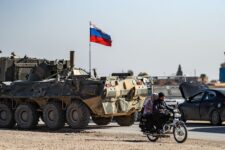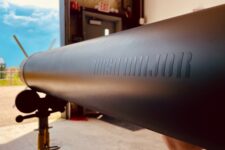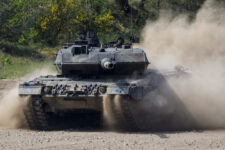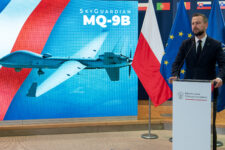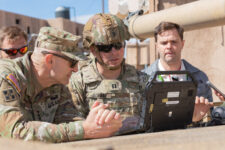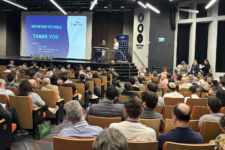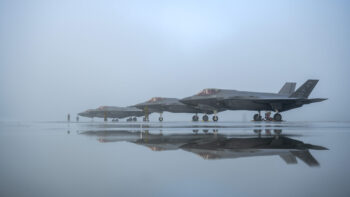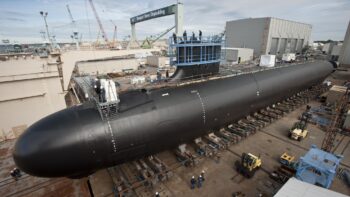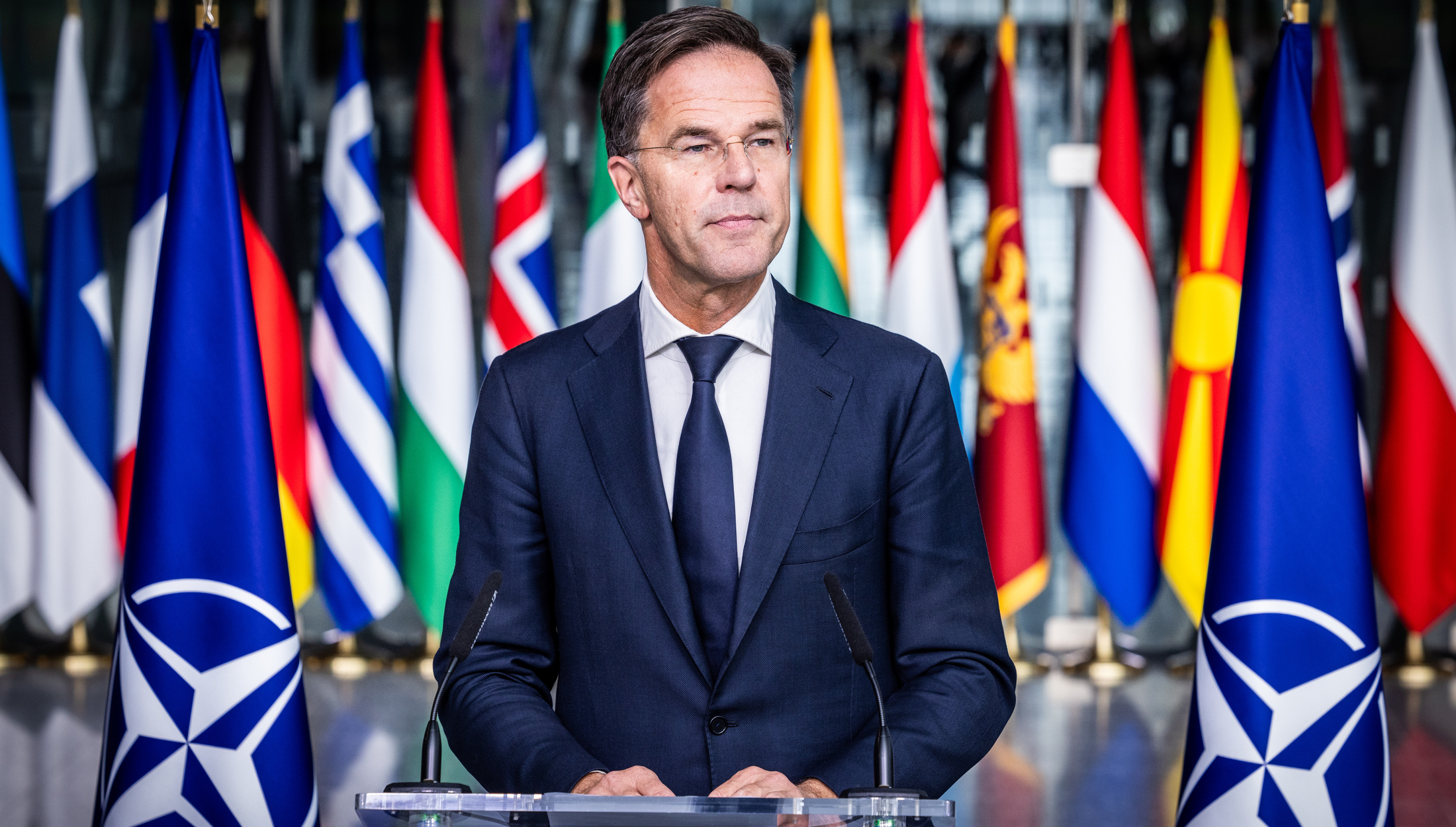
NATO Secretary General Mark Rutte addresses media after a North Atlantic Council meeting with Republic of Korea intelligence and defense officials (NATO)
BELFAST — North Korean troops have been deployed to the Russian border territory of Kursk in support of Moscow’s war against Ukraine, the head of NATO said today, calling the move “a sign of [Russian President Vladimir] Putin’s growing desperation.”
“I can confirm that North Korean troops have been sent to Russia and that North Korean military units have been deployed to the Kursk Region,” Secretary General Mark Rutte said in a press briefing after a North Atlantic Council meeting with South Korea’s National Intelligence Service and its Ministry of National Defense.
Rutte called the development a “significant escalation” of DPRK’s continued involvement in Russia’s “illegal war” against Ukraine and a further “breach” of UN Security Council resolutions.
Hours later Pentagon spokesperson Sabrina Singh told reporters an estimated 10,000 North Korean troops had been sent to “train in eastern Russia [and] will probably augment Russian forces near Ukraine over the next several weeks.” Singh said “a portion of those solders have already moved closer to Ukraine.”
Echoing Rutte, Singh said any move to put North Korean troops in combat “highlights President Putin’s increasing desperation, as Russia has suffered extraordinary casualties on the battlefield, and an indication that Putin may be in more trouble than people realize.”
The troop commitment mirrors the estimated number of troops — 10,000 — that Ukraine used to seize portions of the Russian territory of Kursk in August.
Rutte said that NATO “calls on Russia and the DPRK to cease these actions immediately.”
“The deepening military cooperation between Russia and North Korea is a threat to both the Indo-Pacific and Euro-Atlantic security. It undermines peace on the Korean Peninsula and fuels the Russian war against Ukraine,” he said.
Earlier this month, John Kirby, US National Security Adviser, said that should DPRK troops be deployed in Russia they could expect to be treated as “fair game” by Ukrainian forces.
“The possibility that there could be dead and wounded North Korean soldiers fighting against Ukraine is — is absolutely real if they get deployed,” he told reporters.
On Friday the Council on Foreign Relations published an analysis on the potential introduction of North Korean troops into the fighting, saying in a counterpoint to Rutte and Singh that since Russian forces have been gaining ground recently, it’s unlikely Putin was acting out of desperation.
“Rather, Putin is probably making this move based on tactical considerations,” the analysis said. “In helping Russia retake Kursk, the North Korean contingent can also allow Putin to focus Russian forces on their advance in eastern Ukraine, the main front where Russia has been steadily, if slowly, advancing.”
Either way, defense ties have become more pronounced since Moscow and Pyongyang signed a mutual defense agreement in June. The pact commits the two sides to come to the other’s defense in the event of being attacked.
Beyond troops, it is estimated that the DPRK has supplied Moscow with over 8 million 122mm and 155mm artillery shells, based on Republic of Korea intelligence that the nation says has been verified by satellite imagery of Russian cargo ships transporting weapons in large containers out of North Korean ports. Ukrainian officials have also said North Korean KN-23 short-range ballistic missiles have been used to target Ukrainian cities.
“Pyongyang has already supplied Russia with millions of rounds of ammunition and ballistic missiles that are fuelling a major conflict in the heart of Europe and undermining global peace and security,” Rutte explained. “In exchange, Putin is providing North Korea with military technology and other support to circumvent international sanctions.”
Russian forces have sustained more than 600,000 losses or injured personnel since the war in Ukraine started, leaving Putin “unable to sustain his assault … without foreign support,” according to Rutte.
Allies, Ukraine and Indo-Pacific partners are in close consultation about the Kursk deployment and the need to bolster military aid for Kyiv, he added.
On Sunday, Ukrainian President Volodymyr Zelenskyy said on X that additional military aid packages are expected “next week,” following the creation of a northern Europe cooperation pact made up of Ukraine, Finland, Sweden, Norway, Denmark and Iceland.
“We expect support from all our partners for the Victory Plan,” he shared. “They all understand the importance of being resolute and the necessity of creating challenges for the aggressor, so that Russia loses the ability to disrupt global stability.”
Ashley Roque contributed reporting from Washington.

